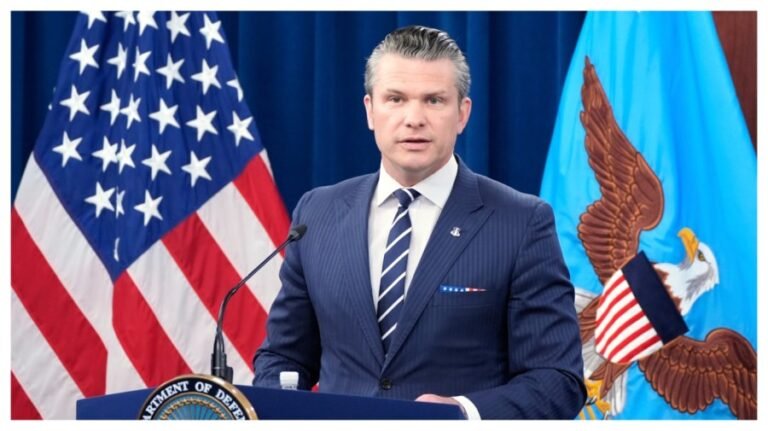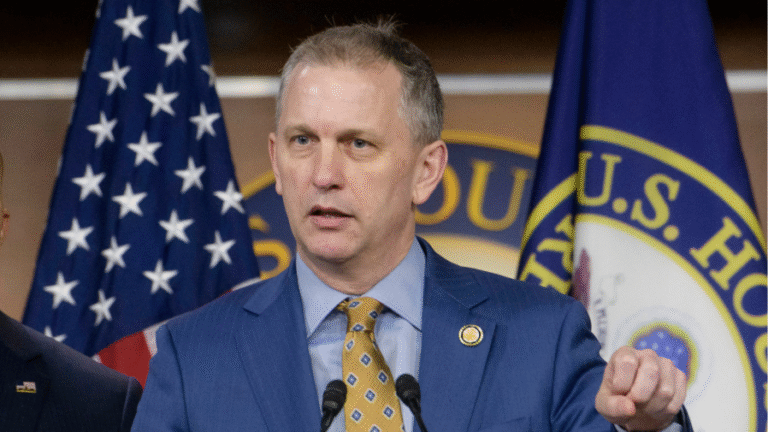
The Supreme Court last week upheld a lower court’s order, directing the Trump administration to “facilitate” the return to the U.S. of a Salvadoran national whom it admits to having illegally deported to El Salvador’s infamous CECOT prison last month.
In an Oval Office meeting Monday, El Salvador’s President Nayib Bukele said he won’t return Kilmar Abrego Garcia to the U.S., which is hardly a surprise, as he is reportedly getting paid $6 million per year to keep him and the others. Make no mistake: Trump, not Bukele, is in charge.
The high court’s unanimous decision has been called “excellent news for the rule of law” and a loss for Trump in that he “failed to evade judicial review.” But it’s a bit of an underwhelming “win” that the court’s right-wing majority declined to endorse wholeheartedly Trump’s renditioning of an innocent man to a foreign gulag with no constitutional process whatsoever.
The justices should have shouted from the rooftops that this practice must stop immediately. On Saturday, the U.S. government sent 10 more people to the notoriously brutal prison, where they might never again see the light of day.
In its terse ruling, the justices instead gave Trump an out, of which he is taking full advantage.
The district court had ruled that Abrego Garcia’s “continued presence in El Salvador, for obvious reasons, constitutes irreparable harm,” and ordered that the government “restore him to the status quo” and “facilitate and effectuate” his return before midnight on Apr. 7. Chief Justice John Roberts temporarily stayed the order, which the full court later upheld to the extent, in the court’s words, that it “properly requires the government to ‘facilitate’ Abrego Garcia’s release from custody in El Salvador and to ensure that his case is handled as it would have been had he not been improperly sent to El Salvador.”
The kicker is this caveat: “The intended scope of the term ‘effectuate’ … is, however, unclear, and may exceed the District Court’s authority. The District Court should clarify its directive, with due regard for the deference owed to the executive branch in the conduct of foreign affairs.”
The Supreme Court made two giant constitutional leaps here. The first was distinguishing between “facilitate” and “effectuate.” The second was suggesting that the president’s power over “foreign affairs” trumps (pun intended) an individual’s right to rudimentary due process before being wrongly imprisoned in a foreign country.
According to the Merriam-Webster dictionary, to “facilitate” is to “help bring something about,” whereas to “effectuate” is to “cause or bring about” something. In other words, it’s the difference between trying and doing.
The Supreme Court told Trump to try to get El Salvador to release Abrego Garcia back to U.S. custody, but made clear that Trump doesn’t actually have to if he doesn’t want to, so long as he cites “foreign affairs” as an excuse.
In that circumstance, Abrego Garcia could be out of luck, even if El Salvador tortures him, imprisons him in CECOT for life or executes him. Under the Supreme Court’s reasoning, for a court to attempt meaningful oversight on Abrego Garcia’s behalf could exceed its constitutional authority.
Trump has taken the Supreme Court’s cue. On Friday, the district judge issued another order finding that the Trump administration had “failed to comply” with even the “facilitate” part of its order. On Sunday, the government responded defiantly with language straight out of the Supreme Court’s ruling: “The relief sought by plaintiffs is inconsistent with the Supreme Court’s instruction requiring this court to respect the president’s Article II authority to manage foreign policy.” What “facilitate” refers to, according to Trump, is “domestic obstacles that would otherwise impede [his] ability to return here.”
The administration’s position implies that the court cannot order the government to send a plane to El Salvador to pick up Abrego Garcia, for example, or withhold the $6 million in federal taxpayer dollars being paid to imprison him and hundreds of others at Trump’s behest, were El Salvador to refuse to release him. The only thing the district court can conceivably do, according to the Trump team, is ask for daily status reports on Abrego Garcia’s whereabouts — but even that, it notes, might be challenged later. For now, the court must sit tight with the knowledge that Abrego Garcia is “alive and secure.”
The government also bluntly refused in writing to comply with the district court’s order to produce documents regarding the arrangement with the supermax prison.
It is undisputed that Abrego Garcia was entitled to notice of his alleged offense — so far there is no alleged offense — and an opportunity to plead his case before his liberty was taken away. Those rights are plainly set forth in the Fifth Amendment to the Constitution, which all nine justices vowed to uphold.
In contrast, the Constitution contains no mention of the president’s “foreign affairs” power — or, for that matter, his authority over immigration. Article II gives the president the “executive Power,” the commander-in-chief authority and the ability to negotiate treaties and appoint ambassadors and other “public Ministers and counsels” with the advice and consent of the Senate. In contrast, Article I gives Congress the power “to regulate Commerce with foreign Nations,” impose taxes and import tariffs “for the common Defence and general Welfare of the United States,” to “establish a uniform Rule of Naturalization,” and to declare war, among many other things.
James Madison called it “an absurdity — in practice a tyranny” to pretend that presidential power to make war and peace “appears from any direct position to be found in the instrument” of the actual Constitution.
Nonetheless, the Supreme Court has since declared that the president has “plenary and exclusive power … as the sole organ of the federal government in the field of international relations.” But the president’s foreign affairs power remains an implied prerogative — it’s not in the Constitution’s text. Weighed against Abrego Garcia’s explicit right to due process, one would expect the so-called “conservative” justices to acknowledge their own limitations in continuing to allow blatant abuses of individual constitutional rights.
Justice Sonia Sotomayor’s accompanying statement, which was joined by Justices Elena Kagan and Ketanji Brown Jackson, voiced this inescapable truth. “To this day,” she wrote, “the Government has cited no basis in law for Abrego Garcia’s warrantless arrest, his removal to El Salvador, or his confinement in a Salvadoran prison. Nor could it. … The only argument the government offers in support of its request [is] that United States courts cannot grant relief once a deportee crosses the border,” which “is plainly wrong.”
Sotomayor writes, “That means the government must comply with its obligation to provide Abrego Garcia with ‘due process of law.’”
The Supreme Court’s cagey language in Abrego Garcia’s case is serious business. His best hope for freedom now? Trump could change his mind.
Kimberly Wehle is author of the book “Pardon Power: How the Pardon System Works — and Why.”


